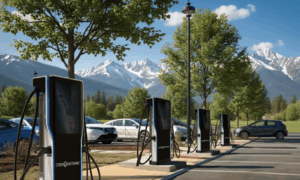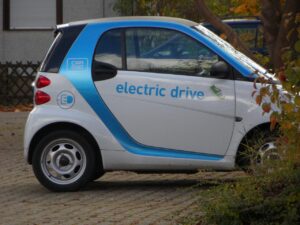
Home / EV Charging News / How Much Does It Cost To Add EV Charging Stations to My Business’s Parking Lot?
As electric vehicles (EVs) continue to grow in popularity, businesses have an opportunity to cater to this expanding market by installing EV charging stations. Adding charging infrastructure to your parking lot can attract eco-conscious customers, enhance your company’s sustainability profile, and even create new revenue streams. But how much does it really cost to install EV charging stations? In this article, we’ll break down the factors that influence costs and help you evaluate the investment.
Understanding the elements that contribute to the overall cost is crucial to budgeting your EV infrastructure project. From the type of chargers to site-specific conditions, here’s what you need to consider:
Breaking down the costs involved helps businesses understand the investment required for EV charging infrastructure. Here are the main components:
Installing EV charging stations doesn’t have to be prohibitively expensive. Businesses can leverage various programs and strategies to reduce costs:
Installing EV chargers is more than an expense; it’s an investment in your business’s future. Here’s why it pays off:
Cost estimates can vary based on the size and scope of your project. Here are some examples to provide context:
The cost of adding EV charging stations to your business’s parking lot depends on factors such as the type of chargers, site conditions, and electrical infrastructure. While upfront costs may seem high, grants and incentives can significantly reduce expenses. Moreover, the long-term benefits—enhanced customer loyalty, improved brand image, and potential revenue—make it a worthwhile investment.
If you’re ready to explore adding EV chargers to your parking lot, consult with installation experts to get an accurate estimate tailored to your needs.



